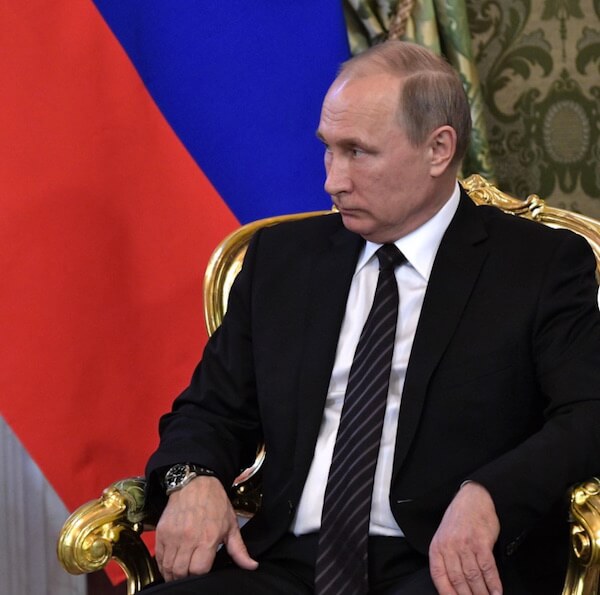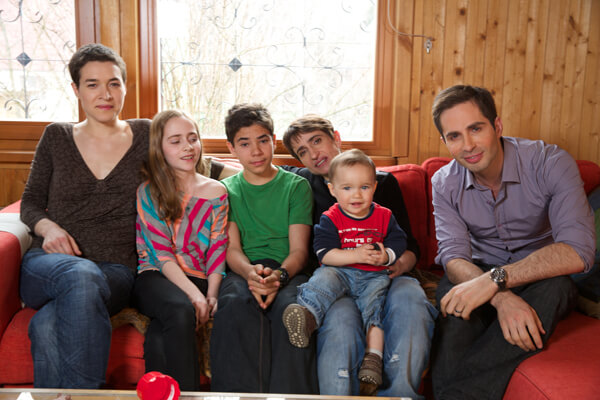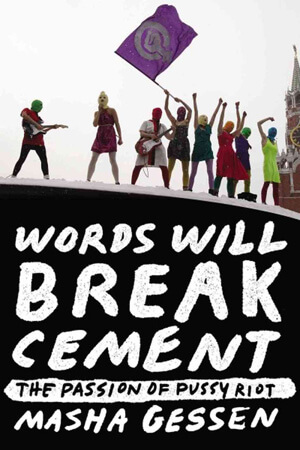Anti-gay laws have mushroomed across Russia under the leadership of President Vladimir Putin. | KREMLIN.RU
A seven-member chamber of the European Court of Human Rights in Strasbourg, in a June 20 ruling, held that local and federal laws in Russia barring actions to “promote homosexuality among minors” or “non-traditional sexual relations” violate the free speech and equality provisions of the European Convention on Human Rights.
The Parliament of the Russian Federation ratified the Convention in 1998, during that country’s period of liberalization, but in 2015 the Parliament approved a draft law endorsed by President Vladimir Putin authorizing Russia to ignore rulings from the European Court of Human Rights inconsistent with the Russian Constitution.
The case consolidated applications to the court by three Russian gay rights advocates, Nikolay Bayev, Aleksey Kiselev, and Nikolay Alekseyev, each of whom had been prosecuted under either the local laws or the federal law, all of which make it an administrative offense, punishable by a fine, to “promote homosexuality” or “non-traditional sexual relations” to minors.
Free speech, equality provisions of Convention on Human Rights, which Moscow signed in ’98, cited
The three applicants had demonstrated with banners asserting the normality of homosexuality, in two cases near schools and libraries where children were likely to see them and in another in front of a government building. Each man was fined, and their appeals were rejected by the constitutional courts in Russia.
In defending the laws, the Russian government insisted that it acted within its authority and consistent with the European Convention to protect the morals of youth and address the demographic and health concerns of the nation.
The government pointed to the severe demographic challenge faced by Russia, which suffers from a declining population, and the consequent goal of pushing Russian youth into heterosexual family relationships to produce more children. It also the noted the risks of HIV transmission through gay sex.
The applicants pointed to the European Convention’s guarantees of free of expression and equality and contended the Russian government did not provide adequate justification for censoring their messages.
The seven-member chamber — whose judgment Russia will appeal to a larger grand chamber of the court — included judges from Sweden, Spain, Switzerland, Slovakia, Cyprus, and the Netherlands, as well as a Russian judge, who was the lone dissenter.
The court thoroughly rejected the Russian government’s arguments. The government admitted the laws restricted freedom of expression, but claimed the restriction fell within the “margin of appreciation” that is justified. While noting the government’s argument that the “margin of appreciation” is wide “where the subject matter may be linked to sensitive moral or ethical issues” on which there is no European consensus, in this case, the court said, “there is a clear European consensus about the recognition of individuals’ right to openly identify themselves as gay, lesbian, or any other sexual minority, and to promote their own rights and freedoms.” The panel cited a prior judgment the court made in a case brought by Alekseyev in opposition to the earliest local enactment of a similar law.
Seeking to justify its position, the government alleged the “incompatibility between maintaining family values as the foundation of society and acknowledging the social acceptance of homosexuality,” but the court was not swayed.
“The Court sees no reason to consider these elements as incompatible, especially in view of the growing general tendency to include relationships between same-sex couples within the concept of ‘family life’ and the acknowledgement of the need for their legal recognition and protection,” its opinion stated.
After noting the strong trend in Europe toward recognition for same-sex relationships and suggesting the court’s jurisprudence had to move with the times, the panel also pointed to the strong desire same-sex couples have evidenced to form families and raise children.
The court added, “The Government failed to demonstrate how freedom of expression on LGBT issues would devalue or otherwise adversely affect actual and existing ‘traditional families’ or would compromise their future.”
Its conclusions, the panel noted, are clearly in line with longstanding rulings.
“The Court has consistently declined to endorse policies and decisions which embodied a predisposed bias on the part of a heterosexual majority against a homosexual minority,” the opinion stated. “It held that these negative attitudes, references to traditions, or general assumptions in a particular country cannot of themselves be considered by the Court to amount to sufficient justification for the differential treatment, any more than similar negative attitudes towards those of a different race, origin, or color.”
The panel specifically rejected the idea that because the majority of Russians strongly oppose homosexuality, that would justify the government in abridging the freedom of expression of gay people seeking to protect their rights.
The court also rejected public health and demographic justifications for the Russian laws.
“Population growth depends on a multitude of conditions, economic prosperity, social-security rights, and accessibility of childcare being the most obvious factors among those susceptible to State influence,” wrote the court. “Suppression of information about same-sex relationships is not a method by which a negative demographic trend may be reversed. Moreover, a hypothetical general benefit would in any event have to be weighed against the concrete rights of LGBT individuals who are adversely affected by the impugned restrictions. It is sufficient to observe that social approval of heterosexual couples is not conditional on their intention or ability to have children.”
As a remedy, the court ordered that the Russian government refund to the applicants the fines they had paid, and also awarded them monetary damages to compensate for expenses incurred in connection with this litigation. Since the laws being challenged remain in force and so “the effects of the harm already sustained by the applicants have not been mitigated,” the court also awarded additional damages as compensation, though the amounts were relatively trivial.
The Russian judge on the panel, Dmitry Dedov, submitted a dissenting opinion contending that the laws under challenge are non-discriminatory, do not impose criminal sanctions for homosexual conduct, and do not single out gay people in suppressing free expression, but rather focus on socially harmful messages that everybody, whether gay or straight, is prohibited from sending to minors. The actions by the federal government and localities, he argued, were based in their “legitimate aim” in promoting the morals and health of minors.
“Needless to say,” Dedov wrote, “sexual identification, as well as sexual orientation, is a very intimate process, albeit influenced by social life and social relations. The international instruments, including the [International Convention of the Rights of the Child], recognize that children should primarily consult their parents or close members of the family, rather than obtaining information about sex from the applicants’ posters in the street.”
The Russian news agency, Tass, quickly reported that the Russian Justice Ministry would appeal the decision and contest the remedy, which totaled about 49,000 euros or $55,000.






































